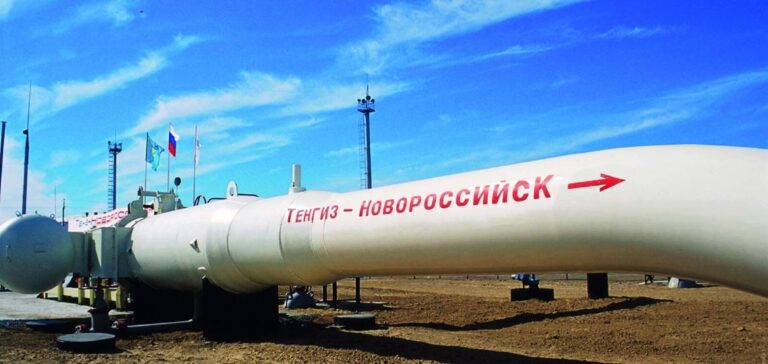The Caspian Pipeline Consortium (CPC) pipeline, which connects the Caspian Sea to the Black Sea, was targeted by a drone attack, leading to the shutdown of the Kropotkinskaya pumping station in southern Russia. The pipeline operator confirmed that the facility is now operating at reduced pumping capacity.
A Strategic Pipeline Under Pressure
The CPC is a major energy infrastructure, primarily transporting Kazakh crude to Europe via Russia. Stretching over 1,500 kilometers, it serves as a crucial supply route for hydrocarbons. According to the operator’s official statement, the attack was carried out by seven drones loaded with explosives and metal fragments, aimed at damaging the equipment and disrupting operations.
Impact and Shareholder Response
The consortium’s shareholders, including Russia (24%), Kazakhstan (19%), and Chevron (15%), have been informed of the incident. No oil spill or personnel injuries were reported. However, the temporary shutdown of the pumping station raises concerns about the vulnerability of energy infrastructure amid the ongoing Russia-Ukraine conflict.
Escalation in Targeting Energy Infrastructure
Since the beginning of Russia’s military campaign in Ukraine, Kyiv has intensified its attacks on Russian energy infrastructure, targeting oil depots and pipelines. This latest strike appears to be part of a broader strategy to disrupt one of Moscow’s key revenue sources for funding its military operations. Meanwhile, Russia has claimed to have intercepted 90 Ukrainian drones overnight, while Ukraine reported shooting down 83 out of 147 drones launched by Moscow.
Consequences for the Oil Market
The temporary reduction in pipeline capacity may affect Kazakh crude supplies to Europe. While the immediate impact on oil prices remains limited, the attack highlights geopolitical risks to energy infrastructure and the need for market players to anticipate potential future disruptions.





















